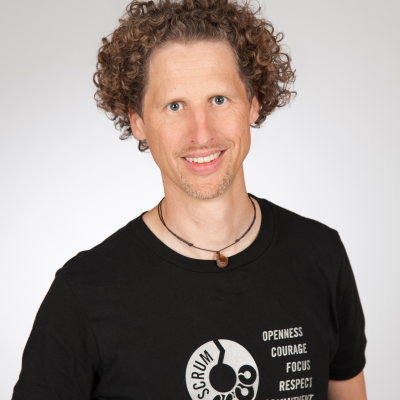Scrum Guide and Scaling: Part 1 - Scrum Theory

This is the first blog post in a series of articles, where we interpret the Scrum Guide and try our best to create the Guidelines for the "rule-abiding" Scaling of Scrum.
The Scrum Guide defines Scrum as follows:
Scrum (n): A framework within which people can address complex adaptive problems, while productively and creatively delivering products of the highest possible value.
- Scrum Guide and Scaling: Part 1 - Scrum Theory
- Scrum Guide and Scaling: Part 2 - Scrum Teams
- Scrum Guide and Scaling: Part 3 - Scrum Events
- Scrum Guide and Scaling: Part 4 - Scrum Artifacts
If Scrum is a framework than Scaled Scrum can also only be a framework for Scrum implementations in product development where more than one team is needed. In case of doubt in a Scaled Scrum implementation there are should be not more rules, roles, and ceremonies as in a simple Scum implementation with only one team.
Just as the definition of the Scrum framework describes the basis that can be realized with different techniques, tactics and practices, the definition of a scaled Scrum framework should also be independent of precise development practices or organizational constellations.
With these thoughts in the background, we go strictly through the text and interpret the statments from the Scrum Guide trying our best to create the Guidelines for the "rule-abiding" Scaling of Scrum.
1. Scrum Theory
The Scrum Guide does not say much about the theoretical basics of Scrum, for example, why it works. Still a fundamental point which is important for the understanding of the framework and its implications is emphasized:
Scrum is founded on empirical process control theory, or empiricism. Empiricism asserts that knowledge comes from experience and making decisions based on what is known. Scrum employs an iterative, incremental approach to optimize predictability and control risk.
A Scrum-based product development must therefore be regularly revised itself. On the basis of a mutual transparency which embraces the whole development organisation the following applies:
- Thus a rigid scope of delivery makes little sense with regard to the further development of the product. Instead, the opportunity and ability to customize product content is needed.
- With regard to the way the team works exchange within and between teams must be ensured.
- In terms of improving the development practices and shared processes periodic checks and adjustments need to take place.

About the author
Andreas Schliep
Andreas Schliep is a founding member and executive partner of DasScrumTeam. He is a Scrum coach and trainer. He studied at the technical university of Bremerhaven, and worked as a software developer, project manager, team lead and group lead. Andreas has worked with Scrum since 2003. He became a full-time Scrummer in 2006.
Since then, he has helped to introduce and improve Scrum and agile practices in numerous companies all over the world. His favorite topics are quality management and scaling.
- Experienced ScrumMaster, Product Owner, Coach and Trainer
- Introduced Scrum at WEB.DE
- Coaching of internationally distributed teams
- Transition from RUP to Scrum at UOL Brazil
- Scrum Trainings and Coaching in Germany, Switzerland and Austria

About the author
Peter Beck
Peter has set himself the task of creating companies that deliver value for their customers and employees. That was also the motivation behind his decision to found DasScrumTeam. Peter is a passionate Scrum Trainer (Certified Scrum Trainer, CST) and consultant with a solid background in engineering. Since 2007, he has trained and advised a wide range of development teams, specialist departments, project managers and those in leadership positions, helping them to apply the Scrum framework, agile planning methods and software engineering practices. Peter is a graduate engineer (Dipl.-Ing, TU) specialising in electrical engineering and information technology.
- Experience with Scrum since 2004 as Team member, Scrum Master, Product Owner, Coach and Trainer.
- Served as ScrumMaster in internationally distributed Scrum Teams
- Co-founder and Product Owner at DasScrumTeam AG
- Key interests: Agile companies and Scrum beyond Software
Always up to date with the DasScrumTeam newsletter.
The best in terms of Scrum. Once a month. Every month.
